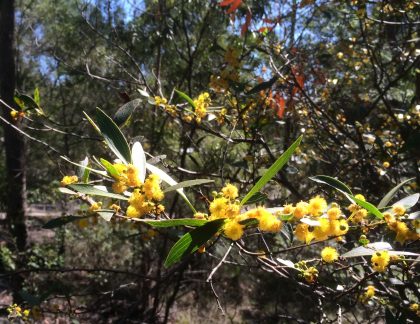This conference is now over. A report will be available soon
“Wildlife Tourism assisting wildlife: making it really happen!”
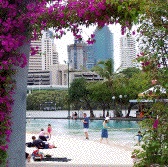
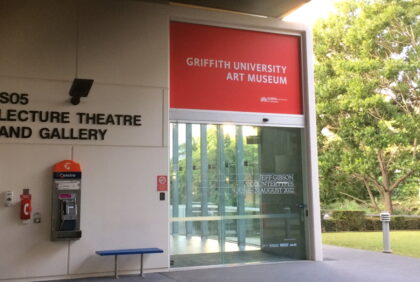
Brisbane and online
30 Oct – 2 Nov 2022
Day 1 Sunday 30 October 2022 Southbank Parklands
Days 2 to 3 Nathan campus Griffith University
This hybrid conference was attended (either in person or virtually) by 81 delegates from 14 countries, including representatives from 37 wildlife-tourism businesses and academics from 8 universities.
See also our exciting Keynote Speakers information: (Hector Ceballos-Lascurain, Peter Gash and Brooke Squires)
Attending in person? Then please register by Friday 21 October. You can still register for the online option and for the public forums (Sunday 30 October) beyond that date. https://www.wildlifetourism.org.au/wildlife-tourism-conference-2022-registration/
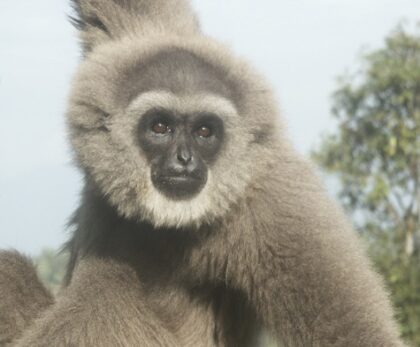
- Sunday afternoon 30th October 2022, Southbank, Brisbane. QCA Lecture Theatre and Gallery, Griffith University (Building S05, Southbank)
- Public presentations and displays, 1.00 – 4.30pm, open to delegates and the general public. Free Entry. It can also be accessed by conference delegates via Teams.
- 1.00 – 2.30pm Wildlife travels between Australia and Indonesia (two countries so close to each other, both with high biodiversity but so very different). Showcasing the cultural and natural attractions, including of course the wildlife, and presentation of a project for resilience of community tourism in both countries funded by the Australia-Indonesia Institute, led by WTA secretary Dr Aise Kim. Sample Indonesian food from the Ma Pa Me restaurant. Register for free here.
- Public forum 3.00-4.30pm. Wildlife-tourist interactions. When is it appropriate and when isn’t it? Where it is allowed, what should the rules be? What are the positive and negative impacts on wildlife conservation animal welfare and public perception of wildlife? Panel members include James Kirkpatrick (University of Tasmania), Emily Flower (Griffith University), Brooke Squires (RAW Africa Ecotours) and others TBA. Register for free here
- 5.00pm. Registration and welcome function for delegates at QCA, Southbank: Room no. TBA
The rest of the conference (except the field trip Tuesday afternoon and the conference dinner) will be at the Lecture Theatre in the Inter-faith and Cultural Dialogue Centre, Nathan campus, Griffith University, Building N35 (Brisbane), also known as the Muti-faith Centre. There is accommodation both at Southbank and near Griffith Uni, and a 20-minute bus-ride between Griffith and Southbank. See conference venue and accommodation page.
NOTE: please check closer to the event for any last-minute changes to schedules and presenters
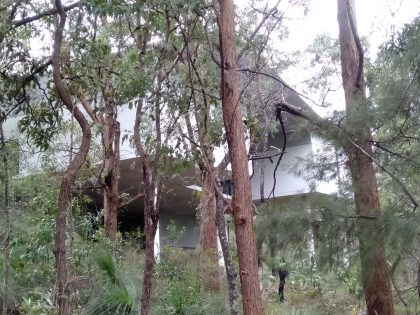
- Monday 31st October. Multifaith Centre, Nathan campus, Griffith University. Building N35.
- 8.30am Registration opens
- 9.00am Welcome
- 9.15am Session chair Ronda Green
- 9.15am Keynote Speaker Peter Gash (custodian of Lady Elliot Island). “30 years of Lady Elliot Island in 40 minutes!” (Lady Elliot Island was the Australian example of good-practice selected for the UNWTO report on sustainable wildlife tourism in Asia and the Pacific, and has been transformed from a highly-disturbed island to a well-vegetated one with the second-highest bird diversity on the Great Barrier Reef)
- 9.55am presentation Simin Maleknia (Tetratherix Medical Devices, Sydney): “Advancing technologies to enable wildlife tourism operators combating wildlife trafficking and threatened species”
- 10.10am short presentation Georgia Kate Moloney, Anne-Lise Chaber and Camille Mellin (University of Adelaide): “Development of innovative tools to detect the illegal wildlife tradethrough high-risk international trade routes”. Online
- 10.15am presentation Madura Thivanka(Edith Cowan University, Sri Lanka): “Creating and developing a sustainable wildlife tourism destination. The case of Hortain Plains National Park in Sri Lanka”
- 10.30am morning tea and opportunity to browse posters (e.g. Colleen Foelz “Entotourism – exposing the public to the wild life of insects”). This opportunity will be available at all our morning tea breaks and other breaks in presentations.
- 11.00am Session chair Sera Steve
- 11.00am presentation José Truda Palazzo, Jr. (Truda Palazzo & Associates, Brazil): “Marine Ecotourism, Wildlife Watching and “Impacts”: Do We Risk Missing the Big Picture?” Online
- 11.15am presentation Sarah Pye (University of the Sunshine Coast): “Conservation narratives: Raising the profile of the mighty fig wasp”
- 11.30am presentation Maree Kerr (Wildlife Tourism Australia, and Bats and Trees Society of Cairns) and Sera Steves (ditto): “The Australian Bat Tourism app”
- 11.45am Keynote Speaker: Brooke Squires (RAW Africa Ecotours). “Wildlife tourism and behaviour change- asking our guests to act on behalf of wildlife.” Brooke worked at Melbourne Zoo before heading to various parts of Africa and Madagascar for both tourism and conservation work, so is in a good position to compare and enlighten us on wildlife tourism within both countries.
- 12.25pm lunch
- 1.10pm Session chair Simin Maleknia
- 1.10pm Michael Johnson (Moonlit Sanctuary, Victoria): “Moonlit Sanctuary’s work in Species Conservation”
- 1.25pm Pragya Bhatt “Elephant tourism: Insights from Tripadviser reviews of Chitwan National Park, Nepal.” Online
- 1.40pm Nahar Muhammed (Tata Institute of Social Sciences, Mumbai, India) “Gujarat as a bird watching destination – Evaluating the potential” Online
- 1.55pm round-table discussion: How do we ensure new developments in Protected Areas minimise impacts on biodiversity and provide quality interpretation
- 2.30pm Afternoon tea
- 3.00pm to 5.00pm Exploration of the Eco-Centre and short bushwalk through Toohey Forest (koala and other wildlife spotting): https://www.griffith.edu.au/griffith-sciences/ecocentre
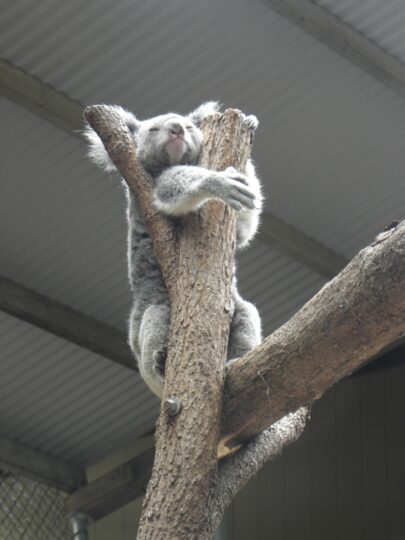
- Tuesday 1st November
- 8.45am Welcome
- 9.00am Session chair Ronda Green
- 9.00am Explanation of proposed new association of wildlife tourism in Japan Online
- 9.05am Rie Usui of (Hijiyama University, Japan) and Thomas Jones (Ritsumeikan Asia-Pacific University, Japan) et al “Prospects for Japanese Wildlife Tourism Research”
- 9.20am Presentation. Thomas Jones, Rie Usui (Hijiyama University) et al :”Comparing motivations to feed feral animals between first-time visitors and repeaters: A case study of Japan’s ‘Rabbit Island’”
- 9.35am Emilie Crossley (Hokkaido University, Japan): “Commodified red fox feeding encounters in Japan’s wildlife tourism industry”
- 9.50am Discussion of proposed new association of wildlife tourism in Japan
- 10.05am Morning tea
- 10.35 Session chair Aise Kim
- 10.35am presentation Sonya Underdahl: “Development for Conservation? Potential problems with private developments in Protected Areas”
- 10.50am Jatna Supriatna and Chris Margules (Institute for Sustainable Earth and Resources, University of Indonesia) “Wildlife Tourism in Indonesia: Progress and Future Development” Online
- 11.05am Joy Mangachena and Catherine Pickering (Griffith University, Australia) “Mapping tourists encounters with wildlife in South Africa: Insights using social media”
- 11.30am Dinesha Senarathna (Auckland University of Technology, New Zealand): “A case study of community women’s engagement in participatory conservation to support Yala wildlife tourism in Sri Lanka”
- 11.45am Pre-launch of book “Working in Wildlife Tourism” by Ronda Green
- 12.00noon to 5.30pm Mid-conference excursion with packed picnic lunch and afternoon tea and guided visits to a well-designed information centre (with presentations therein), a walk-through enclosure with koalas, and a short bush walk through eucalyptus forest and tea-tree wetland, with possible viewing of wild koalas. The major theme of the excursion is quality interpretation (guided and self-guided).
- 7.00pm Conference dinner at MaPaMe Restaurant, Shop 6C, Little Stanley Street, South Bank
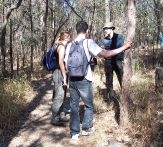
- Wednesday 2nd November
- 9.00am Welcome
- 9.15am Session chair Maree Kerr
- 9.15am presentation Ronda Green (WTA and Griffith University): The Good the Bad and the Indeterminate in wildlife tourism
- 9.30am presentation Catherine Pickering (Griffith University): Australian research into wildlife tourism: A bibliometric review
- 9.45am presentation Noel Scott (WTA and Sunshine Coast University) and Ronda Green (WTA, Araucaria Ecotours and Griffith University): Sustainable Wildlife Tourism in Asia and the Pacific: future perspectives
- 10.00am presentation Manuel Ramón González Herrera (Universidad Autónoma de Ciudad Juárez. México): “Visitors’ education through environmental interpretation in Protected Natural Area: Samalayuca Dunes, Mexico.” Online
- 10.15am Keynote Speaker Hector Ceballos-Lascurain (Program of International Consultancy on Ecotourism). Wildlife tourism and Ecotourism.Online
- 10.45 morning tea
- 11.15am Session chair Ronda Green (who as a research zoologist will also be available for ecology questions)
- 11.15am An important Panel Discussion led by Hector Ceballos-Lascurain (the “father of ecotourism”) on the meaning of ECOtourism and a vision for the future of ecotourism (including wildlife ecotourism) in Australia. Panel members include: Rhiannyn Douglas (policy advisor to the Qld State Minister for Environment), Anna Spenceley (Chair, IUCN WCPA Tourism and Protected Areas Specialist Group), Angus M Robinson (National Geotourism Strategy), Albert Teo (Borneo Ecotours and the Borneo Ecotourism Solutions and Technologies Society), Elissa Keenan (Ecotourism Australia) and Susanne Cooper (National Parks Association Qld). Federal Minister for Tourism the Honorable Don Farrell expressed his considerable interest but also his regrets that he can’t attend. The panel will cover:
- Habitat conservation, regeneration and restoration through Ecotourism
- Ecotourism as a tool for environmental education and ecological awareness
- Minimizing negative impacts of tourism in the natural and cultural heritage
- Ecotourism activities inside and outside of legally protected areas
- Ecotourism as the only economic activity in the world that uses natural resources but leaves them intact (some of what is called “ecotourism” nowadays really isn’t)
- Business aspects of Ecotourism
- Promotional and marketing aspects
- 12.15pm lunch
- 12.35pm AGM of WTA (all welcome but only paid members may vote: bring any unfinished lunch in with you!)
- 1.15pm Session chair Noel Scott
- 1.15pm Rahula Perrera (Aarunya Vacations, Sri Lanka): “Building nature interpretation capacity among safari drivers with poor educational backgrounds”
- 1.30pm presentation Leah Burns (WTA andGriffith University): “Virtual Wildlife Tourism: An ideal form of ecotourism?”
- 1.45pm presentation Bobbie Chew Bigby. “Restoring relationships of respect with eagle relatives: The potential of Tribal-led eagle aviary tours in Oklahoma Indian Country”
- 2.00pm Roundtable discussion Preparing for the Olympic Games: How can we showcase and benefit our threatened, lesser-known wildlife species?
- 2.45pm afternoon tea
- 3.15pm Session chair Leah Burns
- 3.15pm Fran Kearey and Ben Pearson (World Animal Protection): “Too close for comfort: human-wildlife interactions at wildlife entertainment venues.”
- 3.30pm Emily McLeod (Zoos Victoria): “Responsible captive wildlife tourism: what influences tourist decision-making?”
- 3.45pm Fagimba Camara (West African Bird Study Association): “West African Bird Study Association Wabsa Planted Over I Million Mangroves Propagules In Jokadu National Park” Short presentation Online
- 3.50pm Kaitano Dube (Vaal University of Technology, South Africa) “Climate, conservation and potential remedies for Marakele National Park, South Africa” Online
- 4.05pm Concluding remarks and open plenary discussion on any messages emerging from the conference to send to media, government and NGO’s (please be thinking of these throughout the conference and be ready wth your suggestions, preferably handing them to the organisers well in advance of this session)
- 4.45pm end of conference
